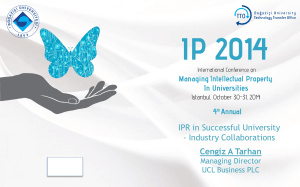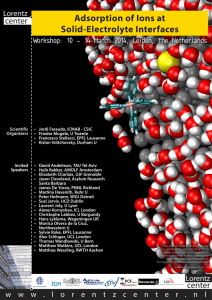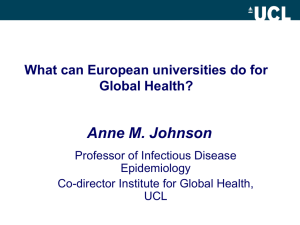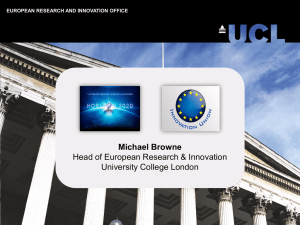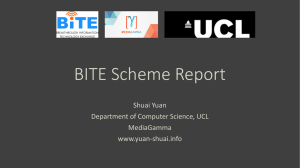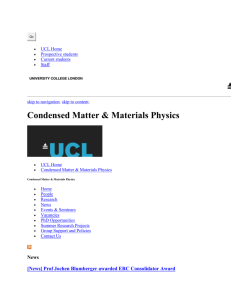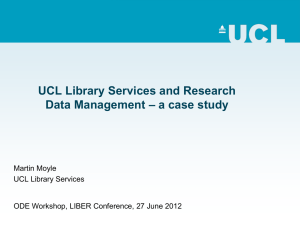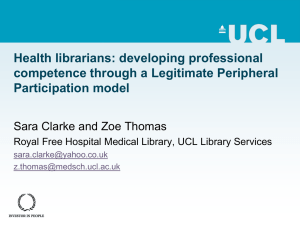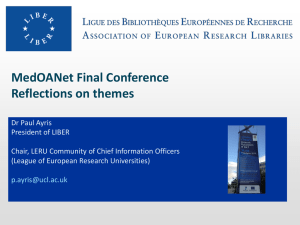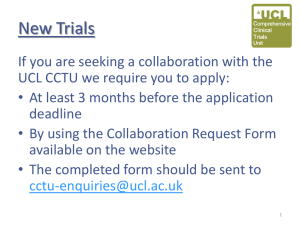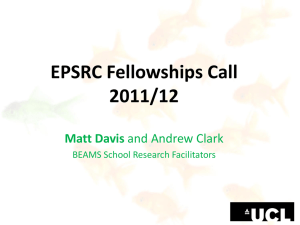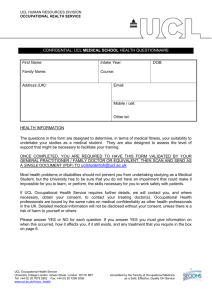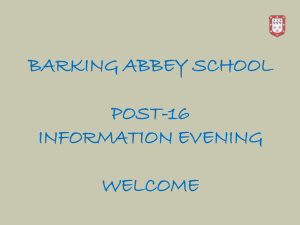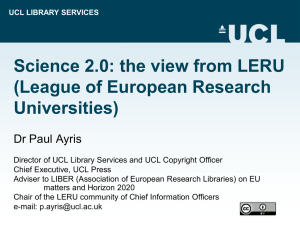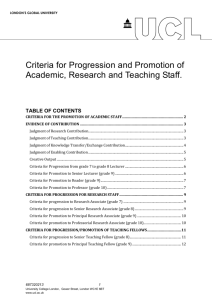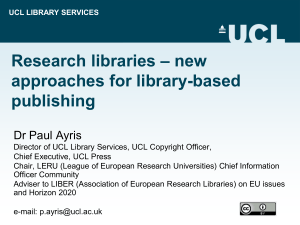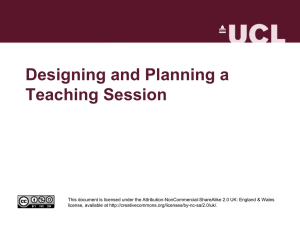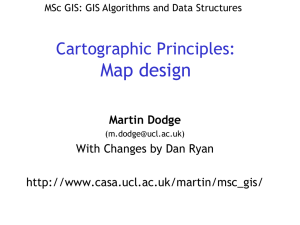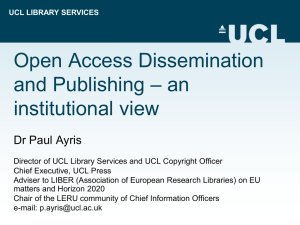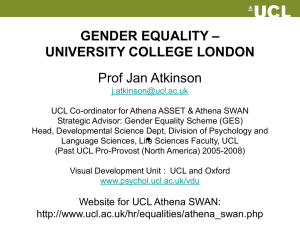slides - University College London
advertisement
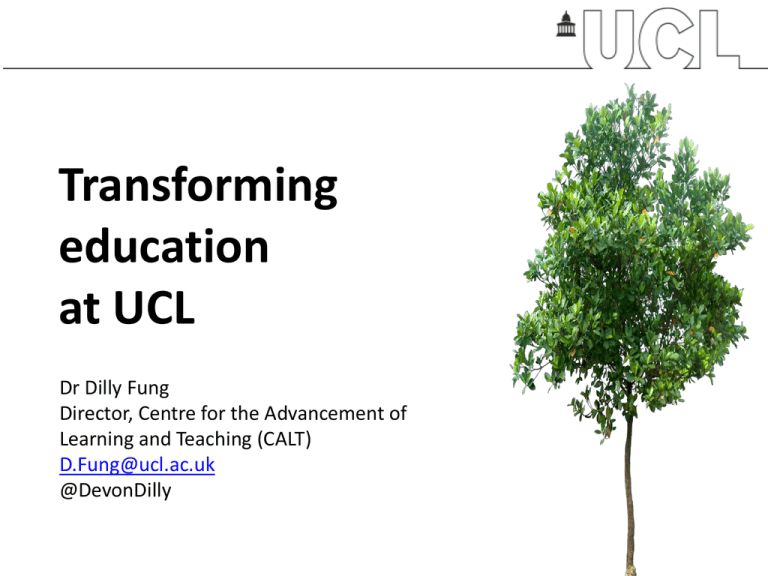
Transforming education at UCL Dr Dilly Fung Director, Centre for the Advancement of Learning and Teaching (CALT) D.Fung@ucl.ac.uk @DevonDilly Research, education and professional practice: separate endeavours - in competition? Or necessarily interdependent? Recognising education’s relationship with academic practice more widely, and with leadership, is enabling us to transform it. The ‘ecological’ university Recognising the true interconnectedness of our activities can help us to build a new ‘feasible utopia’ (Barnett, 2011) Three interconnected developments at UCL Connected Curriculum UCL Arena UCL ChangeMakers A space for dialogue about education • Welcomes you if you teach, supervise research and/or support students’ learning, no matter what your job title • Provides wide menu of activities and opportunities, on all aspects of education, including learning, teaching, curriculum design, assessment and feedback, student support and education leadership • Encompasses wider dimensions of academic practice, including building a research career • Leads to HEA Fellowship awards Job titles, reward and recognition • Looking at synergies between HEA awards and promotions criteria • Review of roles: does the division between ‘teaching’ and ‘academic/research’ roles serve our needs? • Building on opportunities for promotion to Professor through leadership in education: underlines parity of esteem in institutional culture. • Need to address serious inequalities of opportunity, and reward all those who contribute to the institution’s ecology (see Locke, 2014 and Cashmore et al., 2013) A Connected Curriculum for UCL A new approach to research-based education UCL’s Connected Curriculum (Fung, 2014) Students connect with each other, across phases, and with alumni Students learn to produce outputs – assessments directed at an audience Students connect with staff and their world-leading research Students learn through research and enquiry Students connect academic learning with workplace learning A ‘throughline’ of research activity is built into each programme Students make connections across subjects and out to the world http://www.ucl.ac.uk/teachinglearning/strategic_priorities/co nnected-curriculum There are many contemporary ideas for curriculum change in higher education. They include researchbased education, internationalisation, the global classroom, interdisciplinarity, public engagement, ease with the digital age, students as authors of their own texts and the development of students as critical citizens. The extraordinary thing about UCL’s ‘Connected Curriculum’ initiative is that it is attempting to do justice to all of these possibilities. The world of higher education will be watching with fascination to see how this very ambitious strategy unfolds. Professor Ronald Barnett Emeritus Professor of Higher Education, Institute of Education, London (17 Nov 2014: email correspondence) UCL ChangeMakers UCL ChangeMaker Projects • New scheme to be launched at UCL at Teaching and Learning Conference, 13 April 2015 • Aims to provide an opportunities for students (UG/PGT/PGR) to identify an aspect of their education that they would like to enhance, develop or innovate • Funded research projects, leading to recommendations and research ‘outputs’ at a UCL ChangeMakers Conference http://www.ucl.ac.uk/changemakers ‘Rare are those who dare even to dream utopian dreams about possible alternatives.’ Slavoj Zizek (2009) First as Tragedy, Then as Farce p.77, cited in Barnett’s Being a University (2011, p.16) References Barnett, R. (2011) Being a University Routledge, Oxford and New York Locke, W. (2014) Shifting academic careers: implications for enhancing professionalism in teaching and supporting learning https://www.heacademy.ac.uk/node/10079 Cashmore, A., Cane, C. & Cane, R. (2013) Rebalancing Promotion in the HE Sector: is teaching excellence being rewarded? https://www.heacademy.ac.uk/sites/default/files/HEA_Reward_ Publication_RebalancingPromotion_0.pdf


